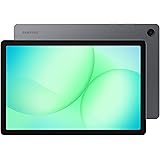Unlock the Hidden Truth: Why Choosing Between Cash and Accrual Accounting Could Make or Break Your Business Success

Alright, let’s be real for a sec — managing money in your business isn’t exactly what gets you outta bed in the morning. But here’s the kicker: if you don’t truly get how money flows through your operation, you’re flying blind when making crucial decisions. Cash and accrual accounting—ever heard of these two? They’re like the yin and yang of business finance, each giving you a different angle on your company’s financial health. Which one suits your hustle? Let’s dive in and unravel that mystery.
Cash Accounting – The Straight Shooter
Cash accounting is the no-nonsense approach where you only record revenue when you actually see the cash hit your account, and you note expenses when they’re paid out. Think of it as your financial reality check — simple, clean, and perfect for smaller businesses or solo entrepreneurs who like to keep their money matters crystal clear.
Picture this: You’re freelancing as a designer. You wrap a project in May, but the client’s wallet doesn’t open ’til June. With cash accounting, your income hits the books in June. No guesswork about what you’ve really got in hand. Sounds kinda comforting, doesn’t it?
But, if your business is a bit more complex—more deals, more moving parts—cash accounting won’t tell the full story. Enter accrual accounting.
Accrual Accounting — The Detail Detective
Accrual accounting flips the script — it’s all about WHEN the transaction happens, regardless of when money switches hands. Revenue gets recognized the moment you’ve earned it, and expenses show up as soon as you incur ’em, payment or no payment.
Say you run a florist shop and lock down a big wedding gig for next month. Accrual accounting means you log that sale now, because you’ve already promised the service. Sneaky detail, right? This method offers a nitty-gritty, accurate snapshot of your financial standing — especially crucial for businesses juggling inventory or tracking what customers owe you and vice versa.
Which One’s Your Business’s Best Friend?
Choosing between cash and accrual isn’t just about preference — it’s about matching the game to your play style. If you’re running a one-(wo)man show or a mom-and-pop shop, cash accounting’s straightforward vibe might be just what you need. But if you have your eyes set on scaling up or landing startup business funding, accrual’s broader perspective might give you a competitive edge.
Tax-wise, cash accounting often means less headache since you’re paying taxes on cash you’ve actually received. Accrual? It can offer tax perks too, but managing it demands sharper financial skills.
Picking Your Perfect Financial Sidekick
Here’s the kicker — your choice should match your business’s personality. For instance, a small e-commerce boutique might cruise happily with cash accounting, while a burgeoning tech startup chasing investors would benefit from accrual’s clarity and depth. Unsure? Don’t sweat it — an experienced accountant can help steer you right.
Remember, accounting isn’t just crunching numbers. It’s storytelling. Picking between these two frameworks shapes the narrative of your business’s financial journey. Nail this, and you’re setting yourself up for a future where money management isn’t a hassle but a powerhouse tool.
Got the itch to find funding options tailored for your startup dreams? Pango Financial’s got your six with a killer funding solutions tool designed to bring your vision alive.

Managing finances might not be your favorite part of running a business, but understanding how money flows through your operations is key to making smart decisions. Cash and accrual accounting are two popular methods, each offering unique insights into your company’s financial picture. Here’s what sets them apart and how to decide which is right for your business.
Cash Accounting Simplified
When it comes to business, revenue gets recorded when money is received, and expenses are logged when payments are made. It’s the simplest way to track cash flow, which is ideal for smaller businesses or individuals who want a clear picture of their bank balance.
Say you run a freelance design business. If you complete a project in May but don’t receive payment until June, the earnings are recorded in June using cash accounting. This method helps you avoid confusion about what funds are immediately available and eliminates guesswork.
While simple, cash accounting may not fully capture the financial health of larger businesses with more transactions. That’s where accrual accounting steps in.
The Mechanics of Accrual Accounting
Accrual accounting focuses on when transactions occur, not when cash changes hands. Revenue is recognized when it’s earned, even if payment arrives later. Expenses are recorded when they’re incurred, not necessarily when they’re paid.
Imagine you own a flower shop and book a large wedding order for the following month. Using accrual accounting, this upcoming sale is recorded now because you’ve committed to providing the service. This approach offers a more accurate and detailed financial picture, especially for businesses managing inventory, accounts receivable, or accounts payable.
Key Factors To Help You Choose
When deciding between cash and accrual methods, consider the size, structure, and goals of your business. For small businesses or sole proprietors, cash accounting often makes sense because of its simplicity. On the other hand, companies planning for growth or looking to secure startup business funding might lean toward accrual accounting since it offers a more comprehensive look at financial performance.
Cash accounting can make tax preparation easier, as it aligns closely with when money is available. Meanwhile, accrual accounting may provide tax advantages in different situations, though it often demands more robust financial management.
Making the Choice That Fits
Selecting the right accounting method comes down to understanding your needs. A small online shop might thrive on cash accounting, while a growing tech company considering outside investment could benefit from the accuracy of accrual accounting. Don’t hesitate to consult an accountant for guidance if you’re unsure which path aligns best with your vision.
Accounting isn’t just about numbers; it’s a tool that helps you tell the story of your business. The choice between these options should reflect your needs, goals, and plans for the road ahead. By understanding the differences between cash and accrual accounting, you can set your business up for smoother financial management and success.
Curious about funding options for your new business? Pango Financial has everything you need with a comprehensive funding solutions tool.



















Post Comment